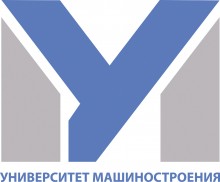Future and Automobiles
It's hard to imagine the 21st century without millions of vehicles, any kind you can think of. Dozens of design companies, hundreds plants throughout the world are working night and day to make transportation for a modern man as comfortable, safe, and fast as it can get. Ask anyone, and they will be ready to name the most famous automotive concerns and the latest luxury models of "iron horses". However, not many really know where is the initial "incubator" for the professionals able to make their dreams come true - at first as a design drawing, and then as a powerful machine.
Moscow State University of Mechanical Engineering (MAMI) is such an incubator for Russia. Well, not only Russian students study here, but also about 950 students from more than 30 countries. Having graduated from this Moscow University, the professionals will bring their expertise to all over the world: to China, Germany, Vietnam, Mongolia, Ecuador, Armenia, Moldavia, Azerbaijan, Angola, Belorussia, Georgia, Zimbabwe, Iran, Kazakhstan, Colombia, the Congo, Latvia, Lithuania, Tajikistan, Uzbekistan, Ukraine, and many other countries. For the first time Moscow State University of Mechanical Engineering (MAMI) opened its doors for foreign students in 1950 and the first of them graduated in 1955. The title of the University changed several times over time, but its goal remained the same - to train highly qualified professionals in the field of motor car construction and machine building for Russia and other countries.
Foreign undergraduate students can choose any major or field of study of those offered by the University. The studies of the foreign MAMI students is not different from those of Russian undergraduates: the same curriculum, plus mandatory Russian language studies. On-campus life is also full and active - participation in contests in various fields of knowledge, scientific and research projects, sports and leisure activities and contests.
One outstanding example of successful use of opportunities obtained through MAMI is the story of Pablo Iturralde from Ecuador, a student of the Automobiles Department. Now he works at the University and is the head of the Promising Vehicles Lab. He is a leader of several projects.
First of all, it is Formula Student MAMI Team that takes part in Formula SAE, engineering contests among students held among universities of the world and organized by the Society of Automotive Engineers. Exhibition trials are held in the UK, Germany, Italy, Australia, Japan, and the USA.
The task is for the students, who work an engineering company for one year, to design and build a race car meeting the set requirements. The team must submit all the technical specifications for the bolide and to prove to the judges that their solutions are the best suitable ones for this type of contest. Also they must take into consideration feasibility of the solutions they offer and to draw a business-plan for small-batch production of their cars.
Pablo Iturralde tells: "Our team exists since 2007, we've undertaken rebranding this year, and now it's called Formula Dream Russia. Each year we improve our knowledge and capacity, and each year we create new, more sophisticated and efficient bolides. Our experience is a notable distinction from other FS teams in Russia. Each year the judges are harder to impress, but our students find new ways and solutions to get through this stage."
One more achievement for the Promising Vehicles Lab students is participation in Smart Moto Challenge, a unique championship for light motorbikes powered by electricity held in Barcelona. The organizers of the engineering and design contest are ETS Barcelona and ELMOTO Company, which has provided an engine installation for the future bikes. SMC-MAMI team showed the best results in Dynamics nomination and won the all-round standings with the highest score leaving European teams behind. Electricity powered bike designed by MAMI students called MIG 1 showed the best results in exhibition trials, having easily overtaken serial bike of the company. Pablo Itturalde shares his thoughts: "Electricity powered motorbikes have all chances for success considering upcoming shortage of natural energy resources. And they don't cause any harm to the environment."
University of Mechanical Engineering encourage participation in such international contests, because the students gain team work skills and learn to employ cutting edge technology and stay at the front-line of the latest tendencies. The companies of automotive and motorbike industries gain access to fresh ideas and research results, and they can spot future automotive geniuses among these young people.
Thanks to technology borders and boundaries become transparent and hundred-miles distances don't seem a problem any more. Professionals from all over the world work for the renown international companies. Nevertheless, we don't forget that the basis for future achievement is built in college, that's why University of Mechanical Engineering is eager to improve its international ties and to increase the list of the countries of origin of its students.






